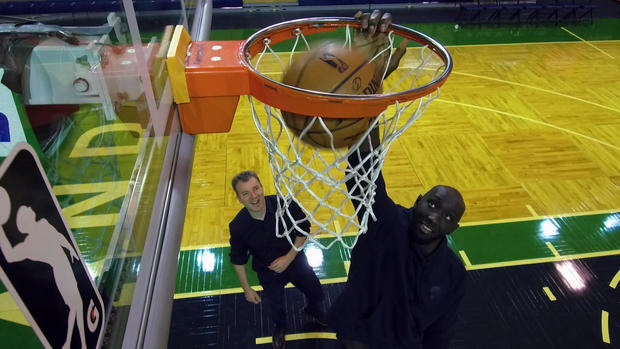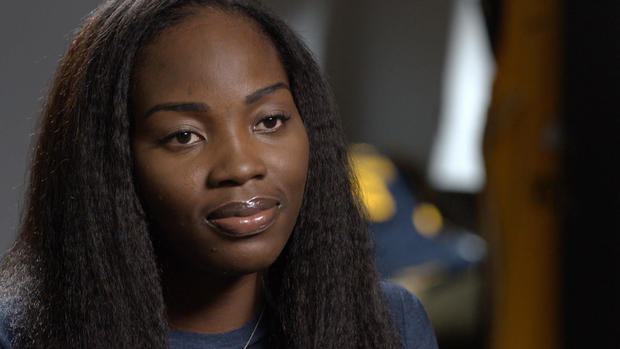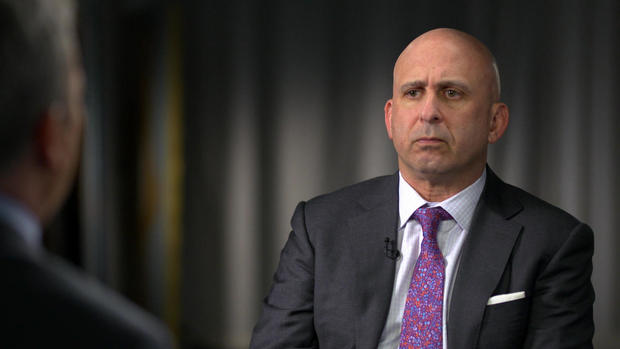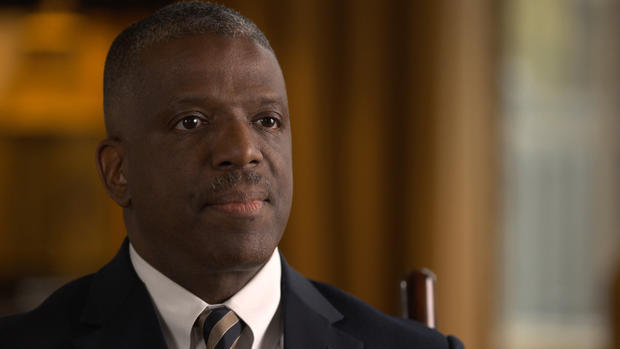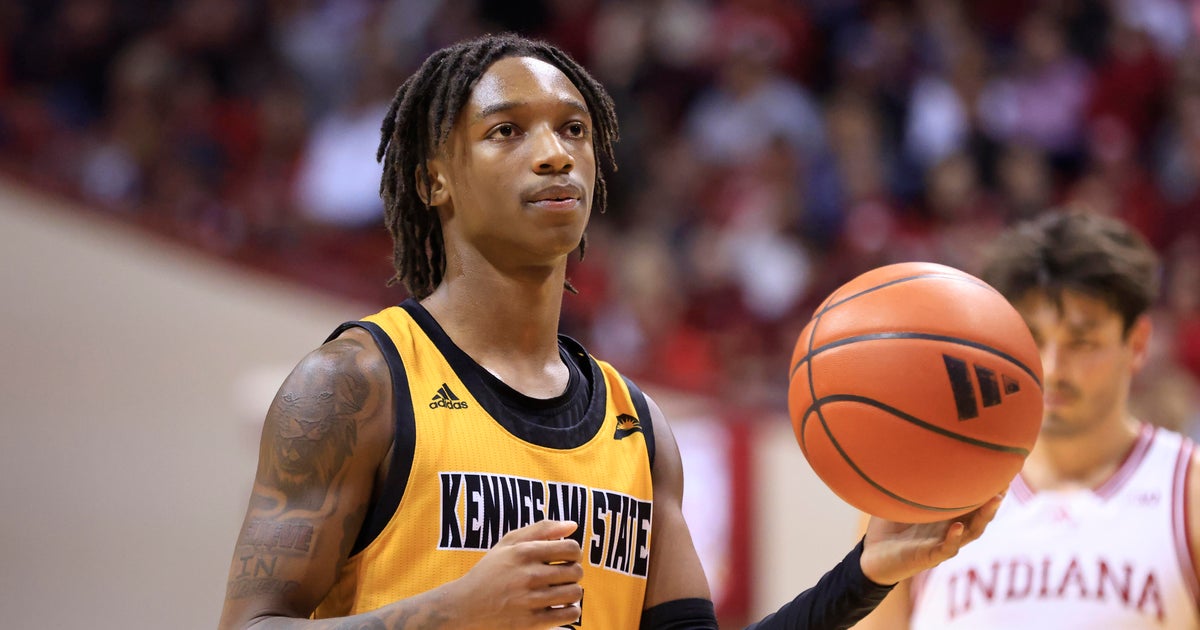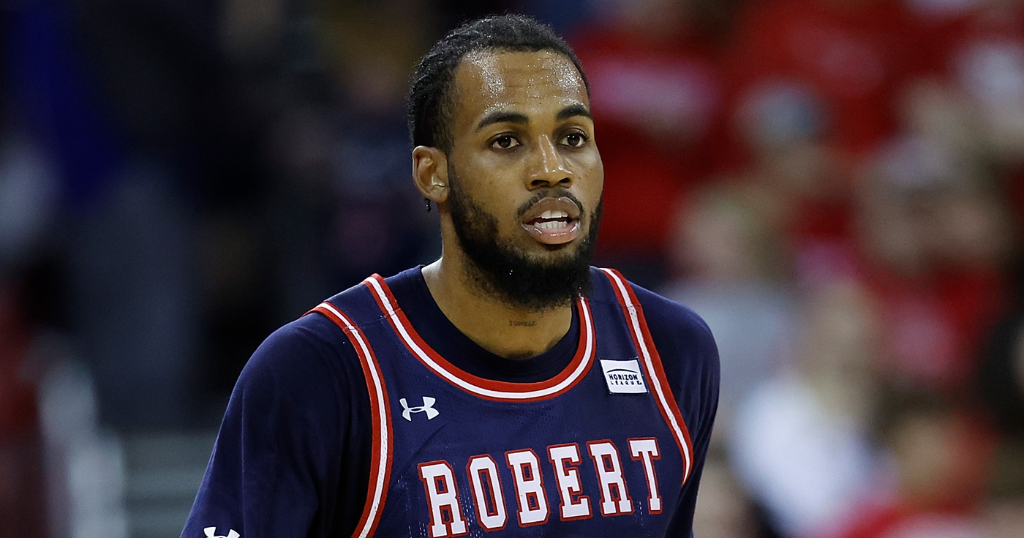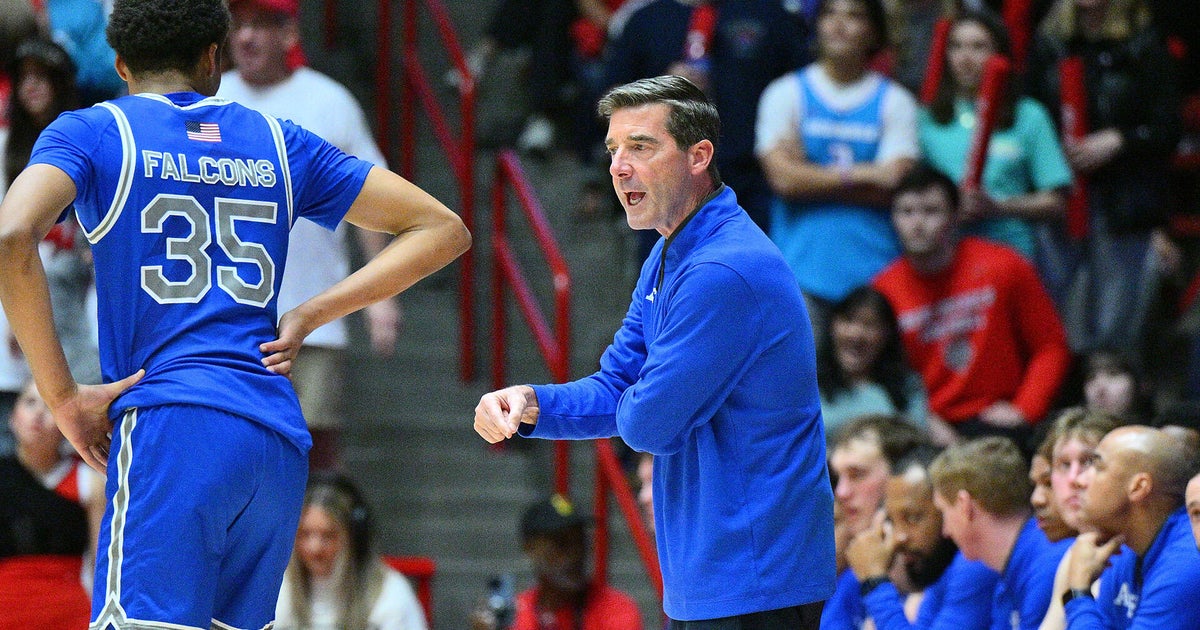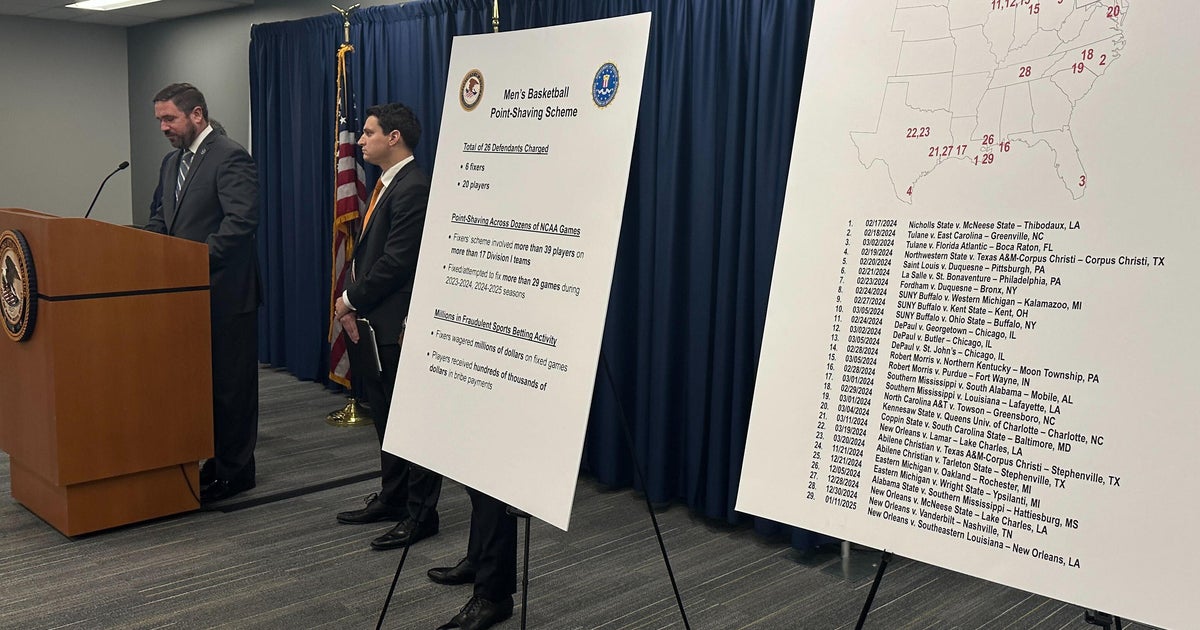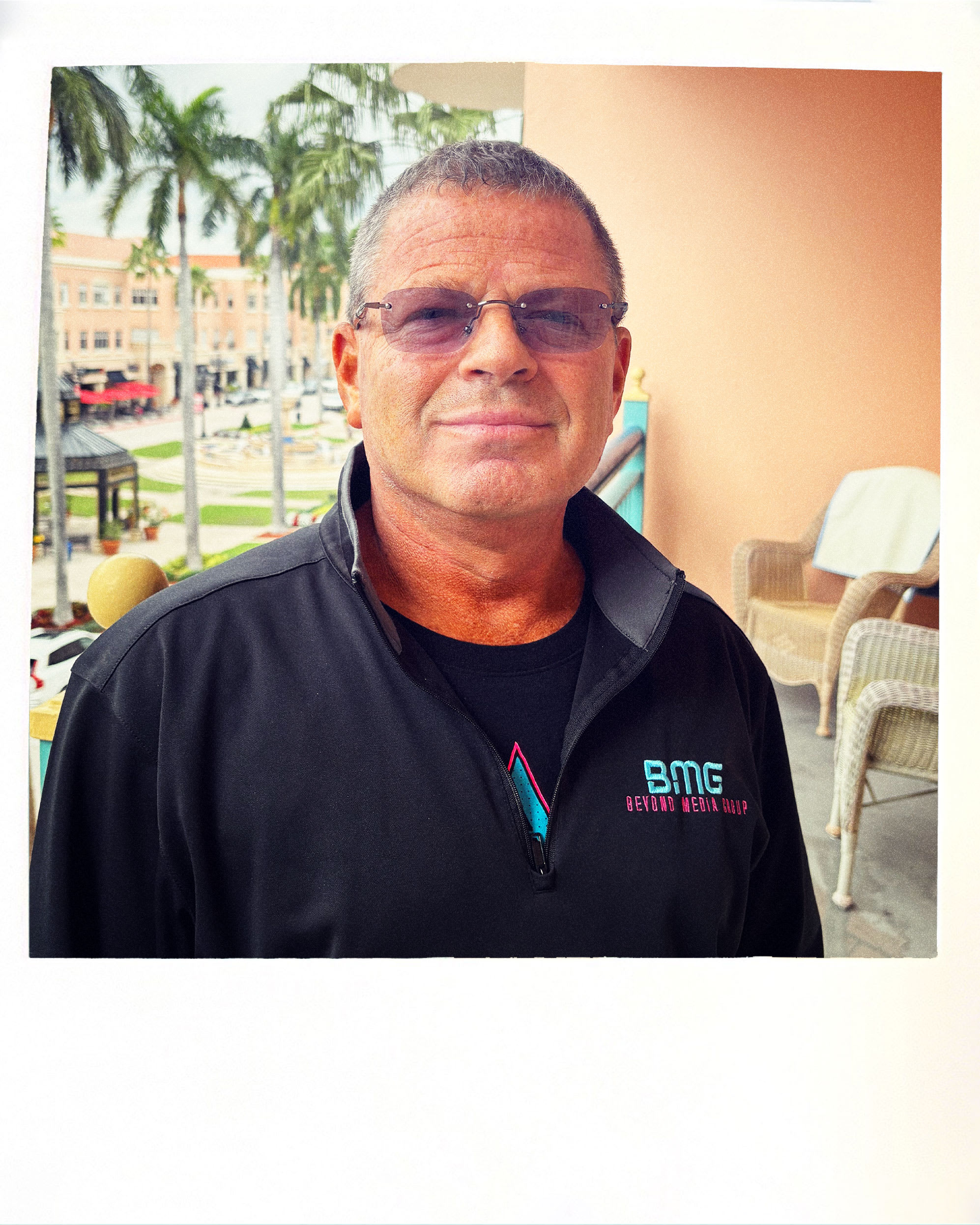Middlemen luring African basketball players to U.S. with false promises
This was supposed to be the thick of the national treasure that is March Madness, the annual college basketball tournament. But on account of the novel coronavirus, the tournament was called off. The NBA, also, is suspended indefinitely.
Tonight, though, an aspect to basketball not up in the air: the undeniable impact of players from Africa. Success stories abound. Yet those, sadly, are exceptions. Vast rosters of young players — first spotted on African playgrounds, sometimes simply for their height — are brought to the U.S., only to be victimized. During a year-long investigation, we followed the Africa-to-U.S. basketball trail. We found it littered with corrupt high schools and shadowy figures who mislead families, violate immigration rules, and even commit federal crimes.
It's the great basketball wave; and it shows no signs of receding. Teams of all levels — high school, college, pro; men's and women's — filled with players from Africa. Most were recruited to come as teenagers. Consider 7'6" Tacko Fall of Senegal, who, as a kid, didn't know much about basketball or the country where he was headed.
Tacko Fall: I thought that the United States was like New York. Like, everywhere was like New York. Big buildings and movie stars everywhere. So I was kind of excited-- just to see. 'Cause I-- I've never been out of my country.
Tacko is an NBA rookie. And with an irresistible personality to match his catchy name, a cult factorite. He toggles between the Boston Celtics and the Celtics' minor league team in Portland, Maine, winning fans wherever he goes. But his journey from Senegal eight years ago was not nearly as smooth.
Tacko Fall: I was young. I was 16. I left my mom and my little brother. And just leaving them once I got here was really, really tough.
Jon Wertheim: The men that brokered your coming here, did they do right by you?
Tacko Fall: I will say that um, they tried.
His first stop was Texas, where recruiters promised him a scholarship. To get him into the country, Tacko was given an I-20/F-1 visa, a federal permission to study at a specific school. But when Tacko arrived, the recruiters switched him to a different charter school, invalidating his visa.
Tacko Fall: For some reason there was an issue with the school where I was supposed to go to. So if you don't go to a school you were supposed to go to, then that school can cancel your I-20. And then once they cancel the I-20, then you're not here legally.
Jon Wertheim: So you're-- you're playing for a charter school on a cancelled visa. You're basically here--
Tacko Fall: Yeah, we were--
Jon Wertheim: --illegally.
Tacko Fall: Yeah. We didn't know.
Jon Wertheim: I-- I can't imagine the stress of -- you may be deported. You may be sent back home.
Tacko Fall: Absolutely.
We found recruiters across the country, who often double as the players legal guardians, playing fast and loose with immigration rules. And we were surprised to learn from immigration and customs enforcement, or ice, that it falls on the kids to fix their visa status.
Jon Wertheim: You-- you go to one school in Tennessee. And then you go to another in Georgia. "Sorry, can't help you." And then you go to another school in Orlando. And they're able to solve this.
Tacko Fall: They're able to solve it.
The Orlando school helped Tacko correct his I-20 visa, and he went on to play at the University of Central Florida, before making it to the NBA. But he knows other African recruits who have had a rougher time of it.
Tacko Fall: There's been many times where I feel like some people have been taken advantage of where they bring them here then that's it. Then they're just left for their own. And if things don't work out, then it's-- they-- they are pretty much screwed.
Take the case of Blessing Ejiofor from Nigeria. At the age of 15, standing 6'5", she was recruited by a scout to come to the U.S. She was armed with an I-20 visa and promised a full scholarship at the Evelyn Mack Academy in North Carolina.
Jon Wertheim: What were you told about Evelyn Mack Academy?
Blessing Ejiofor: Nothing. I just got the I-20 and they were, like, "That's where you're goin'. And when you get to the airport, the coach is gonna be there to pick you up."
Jon Wertheim: And do you go online and see this school in North Carolina?
Blessing Ejiofor: Yes, I did. I was a little bit curious about the team and like, the people. So-- yeah, I did. I went online.
Jon Wertheim: Looked like a nice place to go to school.
Blessing Ejiofor: Yes.
The ornate building that Blessing saw online? Turns out it was a borrowed image of MIT's iconic domed library. And that misleading website was the least of the lies, as Blessing found out as soon as her flight landed.
Jon Wertheim: Do you remember what happened when you got to JFK?
Blessing Ejiofor: Um, yeah. I saw the coach. He-- he had East Side High School, the coach that picked me up from the airport--
Jon Wertheim: East Side High School?
Blessing Ejiofor: Yeah, East Side High School. I'm, like, "Okay, I'm supposed to be going to Evelyn Mack Academy. Why is it East Side High School?"
Jon Wertheim: So you flew over expecting to go to school in North Carolina. You get off the plane at JFK and they say, "No, no, no, you're going to Patterson, New Jersey instead." What was that like?
Blessing Ejiofor: I was young. I was excited to be here. (LAUGH) I was, like, "Okay."
Jon Wertheim: "--Wherever you want me to go, I'll go"?
Blessing Ejiofor: (SIGH) I mean, I couldn't have argued with them.
That's right. A 15-year-old crossed an ocean only to be intercepted at JFK by a coach she had never met and told she was not going to North Carolina but rather to Patterson, New Jersey.
Coaches there were stacking their basketball teams with talented players from Africa like Blessing. And we found other schools nationwide bargaining for African basketball players.
Scott Rosner: It's very much the Wild West in almost every sense of the phrase.
Scott Rosner, sports management professor at Columbia University, told us about an entire culture of middlemen taking advantage of unsuspecting young athletes from Africa.
Jon Wertheim: W-- what would motivate a recruiter or coach-- you say middleman-- to do this to kids?
Scott Rosner: Ultimately, it's all about the money flowing into the system. And they can monetize their connections and their place in the overall basketball world.
In case after case, middlemen are after a cut of future earnings, as much as 40% in one contract we learned about. Bear in mind the average NBA salary, it's now almost $8 million.
Scott Rosner: It's pure unbridled greed. Ultimately, in many cases, it's the young person who's being exploited. And it's certainly off of their labor. And their skill.
Jon Wertheim: How damaging is this to the kids involved?
Scott Rosner: Oh, it's terrible for the kids involved. The kid-- the saddest stories are the ones who don't make it.
Jon Wertheim: The vast majority.
Scott Rosner: --the vast majority who do not make it, really, anywhere close to the NBA. And they've been sold on the dream that they can make it there.
We went to North Carolina to investigate the Evelyn Mack Academy, the school that sponsored Blessing Ejiofor's I-20 visa.
A former police officer, Evelyn Mack housed her namesake academy in a low-slung building. Not at MIT. Only 50 kids went to her school yet she issued visas for more than 75 international students, arousing suspicions of U.S. Homeland Security investigators.
Kenny Smith: Evelyn Mack had a school. And she applied for and received authorization from the Department of Homeland Security to admit foreign students.
Assistant U.S. Attorney Kenny Smith prosecuted a case against Mack in 2018 for conspiracy to harbor aliens. She pleaded guilty; her school shuttered overnight; and she is now serving 18 months in federal prison.
Jon Wertheim: So she filled out paperwork so that students from Africa could come to this school?
Kenny Smith: Yes, Africa and other countries.
Jon Wertheim: Who was asking her to do this?
Kenny Smith: There were basketball coaches. There were basketball recruiters. And they went to Evelyn Mack to use the authorization she had received.
Jon Wertheim: So these are middlemen who say, "I-- I've gotta get that player to the U.S. How'm I gonna do it?" And Evelyn Mack was the answer?
Kenny Smith: And for $1,000, she agreed to file I-20s and help get these students into the United States.
In all, Mack took $75,000 dollars for issuing visas and then looking the other way when coaches and middlemen steered most of the students to other schools across the country.
Jon Wertheim: Do you have a sense of how many other people were involved in this?
Kenny Smith: We do not.
The federal judge sentencing Mack was skeptical that this 69-year-old stood atop a basketball recruiting scheme. Like us, he wondered why the government wasn't going after the people who bought her visas, saying, "She had a co-conspirator on every one of those crimes, all 75 of them… I do not like the fact that these coaches are not… being brought in."
One coach mentioned again and again in this case, Aris Hines.
We found multiple players who said Hines recruited them to the Evelyn Mack Academy and became their legal guardian only to leave them in a crowded house while he lived hours away.
One of those athletes, Souley Doumbia of the Ivory Coast, spoke to us from overseas by video chat.
Jon Wertheim: How did it come to be that you came to the U.S.? Who brought you here?
Souley Doumbia: Um, it's one dude called Aris Hines. He live in North Carolina. He's the one who helped me out.
Standing 6'11", Souley came to the U.S. At age 16, filled with hope.
Jon Wertheim: What were you told about the Evelyn Mack Academy?
Souley Doumbia: I was told it was going to be a good school. I was gonna get an education. I was gonna have good basketball training and everything.
But Souley says when he arrived, the education was inferior and the classes were irregular; he says the school began asking him to pay tuition and when he complained, he was threatened to have his passport taken away. He says Hines didn't help.
Souley Doumbia: He really caused, like, put me in a bad situation. So I didn't want to go do anything with him anymore.
A background search on Aris Hines revealed that across multiple states he was involved with dubious academies and housing in shabby conditions, large numbers of young athletes, both foreign and American.
We also spoke to police sources in North Carolina. They say Hines took more than $27,000 from eight families of athletes, promising education and basketball scholarships that he never delivered. Some families say he also lied to them about his credentials and where their kids were attending school. These claims were the basis of eight charges in state court leveled against Hines.
A new district attorney was elected and the charges were dropped.
Hines moved to Texas.
Today, he advertises himself as an elite basketball coach. We found him still working with teens at a Texas community center.
In our initial correspondence with Hines, he proclaimed his innocence, calling allegations against him, "... The same old justice system conspiracy…"
And Hines agreed to an interview with 60 Minutes. We arranged for him to come to New York. But an hour before the appointed time, he cancelled. So we found him outside his Manhattan hotel.
Jon Wertheim: We were going to ask you about Evelyn Mack Academy.
Aris Hines: Oh, I don't know nothing, nothing about that.
Jon Wertheim: You don't know anything about Evelyn Mack Academy?
Aris Hines: I ain't got nothing to say about that.
Jon Wertheim: You have nothing to say about Evelyn Mack Academy?
Aris Hines: No, cause I had no dealings with her.
Jon Wertheim: We talked to a lot of kids, and a lot of people, that have said that you let them down.
Aris Hines: Oh no, oh no. That couldn't, that couldn't be true.
Jon Wertheim: That couldn't be true?
Aris Hines: No, that couldn't be true. That's gotta be, that's gotta be false.
In the wake of the Evelyn Mack Academy mess, the students were uprooted. And most had to return to their home countries.
Who is monitoring these schools as they grant so many international visas? That falls to ICE. Asked about the abuse of the student visa system, they told us they investigate suspicious situations, resulting in "...Both criminal sentences and civil sanctions…"
But in the cases we investigated, nobody appears to have been looking out for the well-being of the kids brought here for their athletic skills.
As for some of the players we followed, Blessing Ejiofor had to return to Nigeria because of her mishandled visa. But she was able to author a happier chapter. She made it back and is now a starter at West Virginia.
Souley Doumbia just made it back to the U.S. as well and is playing at Navarro College in Texas.
Tacko Fall told us he wants to play a leadership role in cleaning up the same sports pipeline he traveled. In the NBA offseasons, he plans to return to Africa to talk to players and their families about the U.S. recruitment process.
Jon Wertheim: What would you tell the 16-year-olds in Africa today about differentiating between the good guys and the bad guys?
Tacko Fall: It's hard. It's hard to do. Especially when you're back home and people come and sell you a dream. It's hard to turn it down.
Produced by Oriana Zill de Granados and Emily Gordon. Broadcast associate, Cristina Gallotto. Edited by Robert Zimet.
